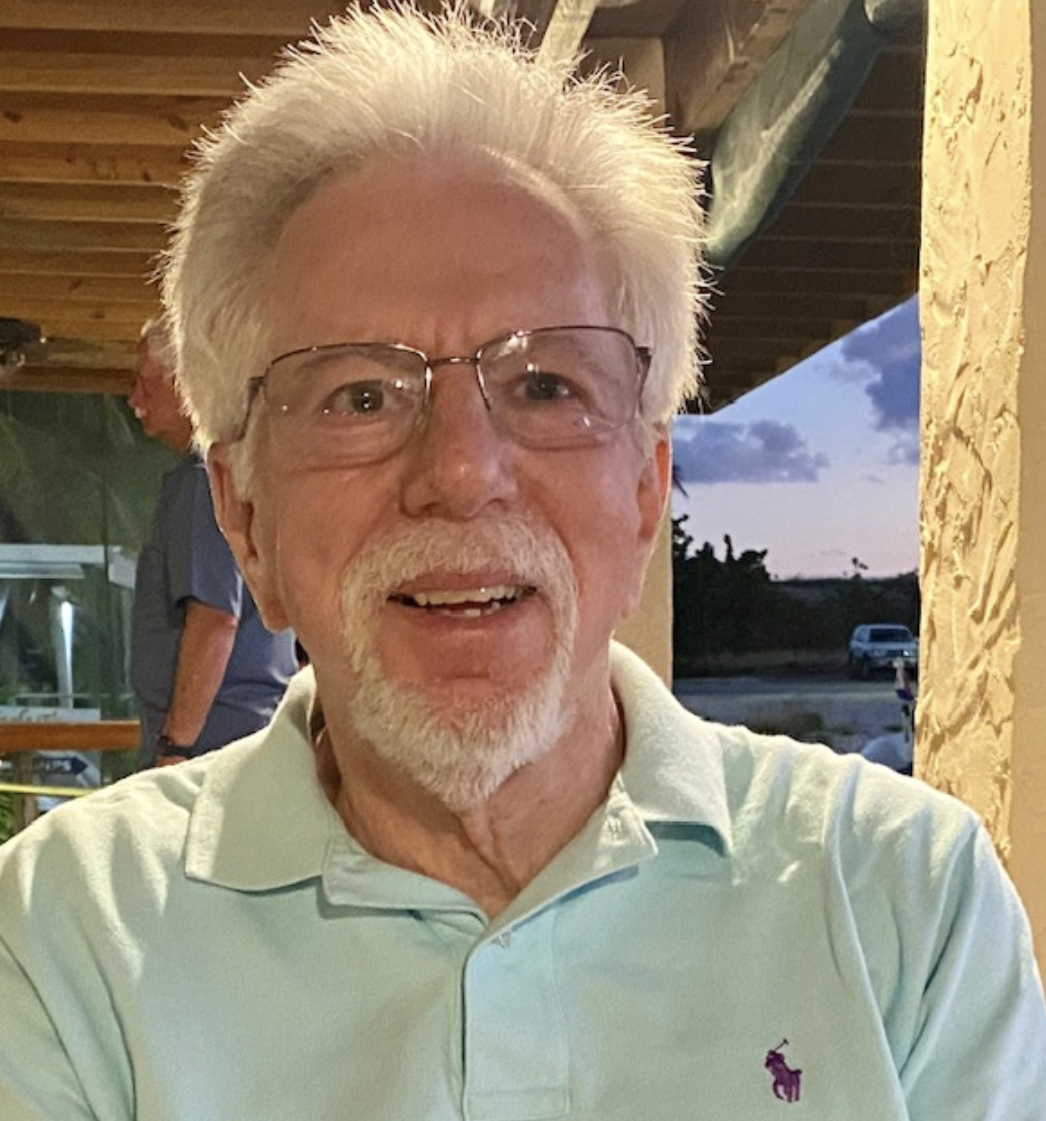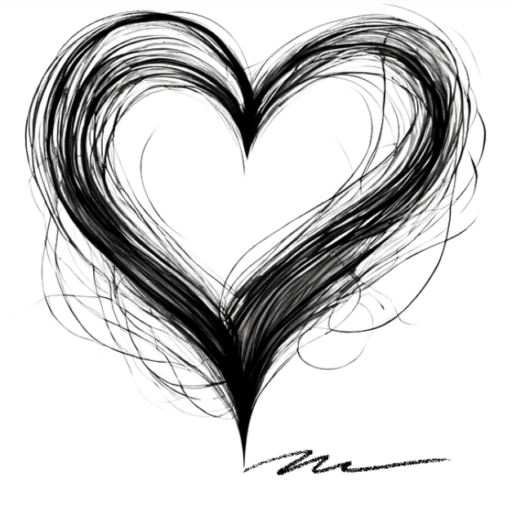The Wound
He sits down on the end of the park bench she occupies and turns to her. She smiles.
“My throat is sore,” he rasps.
“I’ve got Sucrets,” she says.
He laughs and looks at her. “I’ll bet you have secrets. What were you a spy or something? Or maybe you have millions stashed in an account in the Caymans.”
She chuckles. “Do your ears hurt too? I said Sucrets the lozenges, and no I wasn’t a spy.”
She retrieves the box of lozenges from her handbag and hands him one.
“But I still bet you have secrets. Wasn’t there someone you always wanted to be with other than your husband?”
If he’s hitting on her, this is a novel approach.
“Shame on you,” she quips. “We’re both too old to think about that.”
“What about other dreams?” he asks. “Were they fulfilled?”
She studies him before answering. Extremely nosy, but funny and harmless. Presentable clothes, good haircut, relatively fit. She guesses he’s perhaps five years older than she is, in his mid-’70’s, maybe a widower living alone. She could be kind.
“I must say you’re one nosy stranger.”
“Sorry, just trying to make conversation,” he says. “I didn’t mean to offend you.”
“Okay, my life story in fifty words or less. I graduated from CCNY and began a career as an electrical engineer. There weren’t many women doing that. Then I met Alan. We had three kids, boom boom boom, and I never went back to engineering.”
“What do you do now besides talk to old men on park benches?”
“Comedian. After Alan passed away three years ago, I went back to school for an MSW and started volunteering in the psych department at Downstate Medical. I do that three full days a week.”
“Nice,” he says. “So on your day off, would you have a bowl of soup with me?”
She laughs. “Soup? It’s nearly 90 degrees. I’ll go for an iced tea.”
They exchange first names, talk about the weather and summer tourist traffic as they head toward a coffee shop two blocks away. At first, he is a few steps in front of her. She’s surprised at his pace, dismayed because his head is stooped.
When the waitress seats them, he orders an English muffin dry with his iced tea. She orders a piece of cantaloupe but when it comes she sends it back because it’s overripe. She settles for fruit salad.
“So, Norman,” she asks. “What do you do with your time? I assume you’re retired.”
“Yeah, eight years,” he says. “I’m a big reader – mostly literary fiction. I get to the movies maybe once a week and to a museum once a month. Sometimes to Y lectures or Times Talks. What about you, Jill?”
“I read a bit, too, mostly biographies. I take dance at the high school one night a week and I play poker on another night.”
“Big gambler, huh?”
“Not really – it’s nickel and dime. My life is pretty tame. Once a month, I take the train up to Westport to spend the weekend with my son and his family. I have two granddaughters who are growing up too fast.”
She sees there are tears forming in his eyes. He quickly turns his head. She won’t ask him what’s wrong – it’s too soon. He might resent the probing.
He asks her if she’s read the newest Sontag biography and launches into Sontag’s theories of photography. She tries to follow his discourse because of her own interest in photography but keeps visualizing his now wiped-away tears.
They are silent for a long minute. She opens her handbag and extracts a ten-dollar bill.
“Sorry, but I have to go,” she says as she stands. She doesn’t explain where.
“Can we meet again?” he wants to know. “By the same bench, maybe Wednesday?”
She does not answer immediately, but moves the money closer to his placemat.
“Not Wednesday, I’m working that day. Thursday would be okay, but let’s make it 10:00 when it isn’t so hot.”
He smiles at her and she smiles back. “See you, then, Jill.”
She wishes him a good day and leaves the coffee shop. She wonders what it was that brought tears to his eyes. Will she ever want to risk finding out?
Her week volunteering at Downstate Medical is particularly grueling. She deals with a 21-year-old male who slashed his wrists because he felt responsible for his girlfriend’s death. They had argued and she jumped into her car, sped off, and crashed into a barrier on the FDR Drive. Other patients included a bulimic woman in her ‘40s and a man who drank himself out of a job and a marriage.
When Thursday comes around, Jill is in no frame of mind to meet Norman in the park. She feels bad, then relieved once heavy rain comes at 9:00 am. The following week is much easier and she decides to seek him out. She’s fairly certain he’ll show up. Sure enough. when she arrives at their park bench at 9:45, he’s already there.
He thanks her for coming. Banter reigns for the first half-hour. She suggests a stroll around the park as they talk about their activities over the past two weeks. Norman, it seems, is even more liberal than she is. His volunteering takes the form of raising money for Phoenix House and several food banks. They share stories about their parents and grandparents. She asks if he’s married or has a significant other and he shakes his head. She believes him. After two hours, they agree on a real date and they exchange phone numbers.
Jill always told her nieces “Find out his about uglies right away.” When she returns home from the park, she Googles Norman Sherman. There is little about him other than a few references to articles he had written decades ago about negotiating tactics. She called her son in Westport to see if he can find any red flags about Norman and he can’t. He asks his mother where she met him and laughs when she admits it was a park bench.
Jill and Norman meet at a seafood restaurant she’s suggested in the West Village. They both order Sauvignon Blanc and clink glasses. Jill tells him that she Googled him and found his articles.
He laughs. “You struck me from the first as someone above board.”
“I am. I must confess that I didn’t read a single article of yours.”
“That’s good. They’re all outdated. They’re about labor negotiations. When I was in law school at NYU, Theodore Kheel gave a seminar and I was hooked.”
“I remember that name,” Jill says. “Newspaper strike, right?”
“And a lot of other messes as well. I worked under him for a decade.”
“He must have been tough.”
“Of course… but there was a side to him few knew about. Ted was heavily involved in the civil rights movement of the ‘60’s and became Executive Director of the National Urban League. I admired him for that.”
She realizes how much she admires Norman. They talk women’s rights and she relates all the bias she faced as an engineer.
“Finance and publishing were like that, too,” he says. “And of course my profession. That movie about RBG was pretty accurate.”
As dinner winds up, the waiter brings the check. He doesn’t reach for it and she smiles. They agree to split it. Walking out of the restaurant to hail a cab, she takes his hand and continues to hold it throughout their ride uptown. She’s being dropped off first and as she gets out, she kisses him on the cheek and says she’s looking forward to seeing him soon.
For the next month, Jill and Norman see each other twice a week. There are dinners and brunches, concerts and theater, movies and museums. There are laughs and there is serious talk, but not about each other.
One night he says “Next time we see each other, let me cook for you. I do a mean stuffed eggplant.”
When she returns home, she castigates herself for agreeing immediately to this. She knows what it will entail. All week tension builds. Two days before the dinner, she manages a particularly harrowing case in her volunteer work. At home, for the first time in months, she scrutinizes herself in the mirror. Her hair is all gray but thick. Her faced is lined, but not terribly so. Her smile is still engaging. She is nearly as trim as she was in her thirties.
“You want this,” she says to herself. “You can do this.”
In the early evening of their date, walking to his apartment some 15 blocks away, she gives herself another pep talk.
“He’ll want it to happen, and I do care so much for him, so it will happen, and whatever comes out of it will be okay.”
He offers a quick kiss at the door, takes the bottle of wine she’s brought, and leads her into the apartment. She surveys the living room – Danish modern couch and chairs that have been lived in, teak coffee table, end tables piled with magazines, filled bookcase, small TV, stereo system, Impressionist copies on the walls – neat, clean, nothing a surprise. He takes her hand and they walk into the kitchen.
“Can I put you to work on a salad?” he asks.
She smiles. “Sure. Is there a reward?”
“I have a bottle of Sauvignon chilling. Or would you prefer the red you brought, or maybe something hard?”
“Let’s save the wine for dinner. By any chance, do you have Jack Daniels?”
“I do. Over ice? Is that a poker-player thing?”
She laughs. “No. My husband always drank it, and I tried it and liked it.”
She starts on the salad, going about it slowly as she sips her drink and watches him prepare the eggplant dish and vegetables. She tells him about some of the cases she’s been dealing with at work, and they talk about the morning TV hosts who have been dismissed on sexual misconduct allegations.
“Should I set the table?” she asks.
“Done. Early this morning,” he says with a laugh.
The dining alcove is small, as is the table. She’s impressed with the ironed table cloth and modern candle holders. He lights the candles and dims the lights, walks over to her chair and gives her a longer kiss.
“Nice,” she says. “Do you entertain like this frequently?”
She knows the answer. She knows, despite the fact that the setting is perfect and the food will be delicious, that she is the first female guest he’s had in a long time.
They eat slowly, talking, laughing, sipping their wine. Occasionally, she reaches out and puts her hand over his and leaves it there for a few minutes. He offers dessert, but she is too full from the eggplant dish. They bring the plates and silverware into the kitchen.
“I’ll clean up later,” he says. “Let’s listen to some music.”
He heads for the couch in the living room and she follows. He grabs a remote from on top of the books on the end table, and suddenly the music comes on. She looks at him for 20 seconds quizzically and then asks “Is that Rach Two?”
“Score one for you.”
“I saw it performed at Tanglewood. The soloist’s hands moved faster than a hummingbird’s wings. I was so afraid he’d make a mistake, especially when a fly landed on his nose.”
Norman laughs. They listen to the concerto hand-in-hand. When it’s over, he picks up the remote again, clicks, and Chopin’s nocturnes beginning playing. He puts his arm around her, leans in and kisses her deeply. He pulls back and she leans into him and extends the long kiss. When they stop, she puts her hand on his shoulder.
“Norm, I really want to see your bedroom, but I have to tell you something first.”
She takes a deep breath as he looks at her mournfully.
“I had a double mastectomy eight years ago. Alan got used to it, but you may not want to deal with it. I’m trying to deal with it, willing to deal with it with you now, but I haven’t been with anyone since he died.”
He hugs her, kisses her again. His eyes well up.
“Jill, how grateful I am to have this kind of open relationship with you. I haven’t been in a serious relationship for twenty years – a few women friends, yes, but nothing like this.”
“Twenty years?” she asks.
“Yes,” he says, “and my wound, my invisible wound, still hasn’t healed.”
Now she sheds tears as well. She asks him to tell her what happened. He stands up and starts pacing the living room.
“I was 53, married to Cynthia for 23 years. While not an ideal marriage, it was one with many more positives than negatives. We had a daughter, Lily, who was 19. She was a happy kid, one who could do anything. Something changed when she was 17 – and to this day I don’t know what it was. She started using, but somehow got through one year at NYU with fairly good grades. Her addiction deepened rapidly. She was rarely home, barely talking to us. Then one day she let us know she was dropping out and moving to Amsterdam. Cynthia wanted to force her into rehab. I didn’t back her up, hoping Lily would find herself in Europe.”
“Oh, my God, Norm, Lily died, didn’t she?”
“They found her on a street corner, naked, raped, dead from a heroin overdose. Yes, it could have been a homicide – someone could have injected her – but it didn’t matter. I could not stop crying, blaming myself for my permissiveness. If only I had backed Cynthia up. I don’t think she left me because of that. I had ceased to function – couldn’t go to work, wouldn’t bath, shave, eat, refused to talk. She left me three months after Lily’s death.”
Jill stands and walks over to him.
“Oh, Norman, I can’t image what it is to endure the death of a child.”
They hug and sob. After five minutes she takes his hand and leads him into his bedroom. She does not want him to have to deal with her wound now. She leaves her top on as she removes slacks and underwear and slides under the covers. He strips down to his underwear.
He tells her he loves her and she whispers “Me too.”
They kiss deeply and hug for a long time. His knee is in her crotch. She moves him off, takes his hand and moves it to where his knee was. She wants him to feel how wet she is. He inserts a finger and asks her if it’s okay. Oh, yes, please. He is at it for a long time, but she can’t quite get there.
She pushes him away, reaches down and takes off his underwear. He is semi-rigid. She strokes him until he is hard then pulls him on top of her and guides him in. He softens after a minute and falls out. They repeat the routine three more times. He gets out of the bed.
“I’m so sorry, Jill. That’s the last thing I wanted to happen.”
She smiles up at him.
“It’s okay, Norm. We’re out of practice, both of us. Come back to bed.”
She thinks she will play with him until he comes, but he reaches under the covers, retrieves his briefs and puts them on. He is shaking with disappointment.
“How about that dessert you promised me?”
“Yes, sure,” he says. He starts to head for the kitchen, and turns back.
“Jill, will you please stay here with me tonight?”
“Of course,” she says smiling, “but what’s on the breakfast menu?”
He returns the smile, turns on an end-table lamp and retrieves dessert for both of them. They talk quietly for an hour, mostly about their international travels. When she falls asleep, he turns off the lamp.
He awakens first in the morning and watches her sleep. When her eyes open, he kisses her and thanks her for staying the night. She kisses him back. He removes his briefs and they have teenage sex, with all its fumbles and passion.
They clean up the dishes from last night and make breakfast together. They share the joy of finding love at this stage of their lives. She tells him it’s her turn to cook next.
They hug and kiss at the door when she’s ready to leave mid-morning.
On her way home, she wonders if his wound will ever be completely closed, if he will ever free himself from blame, and if there will be scar tissue. She knows he’s ready to deal with her wound.

Lee Marc Stein lives in East Setauket, NY. His poetry has appeared in Blast Furnace, Message in a Bottle, Miller’s Pond, Subliminal Interiors, and The Write Room. His book Whispers in the Galleries features ekphrastic poems. His stories have been published in Fictional Café, Bartleby Snopes, nicollsroad, and Write Place at the Write Time. He led workshops at Stony Brook University’s Lifelong Learning program on modern masters of the novel.



